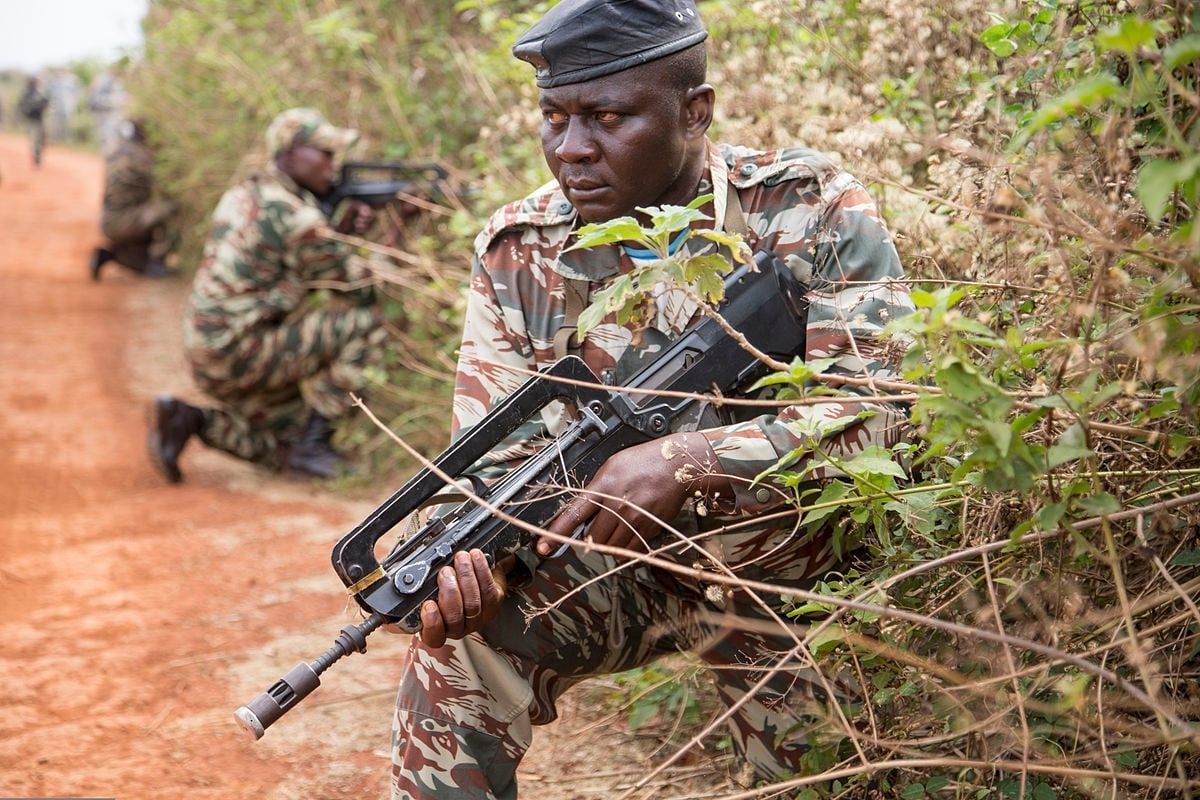
Who were the Bamileke warriors? The Bamileke warriors were fierce and skilled fighters from the Bamileke ethnic group in Cameroon. Known for their bravery, these warriors played a significant role in defending their lands and culture against colonial forces. They used traditional weapons like spears, shields, and bows, and their tactics were deeply rooted in their rich cultural heritage. The Bamileke people are also renowned for their intricate art, vibrant festivals, and strong community bonds. Understanding the history of these warriors provides insight into the resilience and strength of the Bamileke culture, which continues to thrive today.
Key Takeaways:
- The Bamileke War was a crucial conflict in Cameroon's fight for independence from French colonial rule, involving the UPC, influential leaders, and international actors, and leaving a lasting impact on the country's history.
- The war led to displacement, loss of life, and international involvement, ultimately shaping Cameroon's path to independence and influencing its political landscape for decades.
25 Facts about Bamileke War
The Bamileke War, also known as the Bamileke Rebellion, was a significant conflict in Cameroon during the late 1950s and early 1960s. This war played a crucial role in shaping the country's history and its path to independence. Here are 25 intriguing facts about the Bamileke War.
Origins of the Conflict
Understanding the roots of the Bamileke War helps grasp its impact on Cameroon.
- The Bamileke War began as a struggle for independence from French colonial rule.
- The conflict was primarily led by the Union of the Peoples of Cameroon (UPC), a nationalist party.
- The Bamileke people, an ethnic group in western Cameroon, were central to the rebellion.
- Tensions between the French colonial administration and the UPC had been brewing since the 1940s.
Key Figures
Several influential leaders and groups played pivotal roles in the Bamileke War.
- Ruben Um Nyobé, a prominent UPC leader, was a key figure in the early stages of the rebellion.
- Félix-Roland Moumié succeeded Um Nyobé after his assassination in 1958.
- The French colonial forces were led by General Max Briand.
- The Bamileke War saw the involvement of various local chiefs and traditional leaders.
Major Events
The Bamileke War was marked by several significant events that shaped its course.
- In 1955, the UPC was banned by the French authorities, escalating tensions.
- The assassination of Ruben Um Nyobé in 1958 intensified the conflict.
- The French military launched Operation "Bach Mai" in 1959 to suppress the rebellion.
- The conflict saw numerous battles and skirmishes across the Bamileke region.
Impact on Civilians
The war had a profound effect on the civilian population in Cameroon.
- Thousands of Bamileke civilians were displaced due to the fighting.
- Villages were often targeted by both the French forces and the UPC rebels.
- The conflict led to significant loss of life among the Bamileke people.
- Many civilians were subjected to harsh reprisals by the French military.
International Involvement
The Bamileke War drew attention from various international actors.
- The conflict was part of the broader decolonization movement in Africa.
- The Soviet Union and China provided some support to the UPC rebels.
- France received backing from other Western nations in its efforts to maintain control.
- The United Nations monitored the situation but had limited direct involvement.
End of the Conflict
The conclusion of the Bamileke War marked a turning point in Cameroon's history.
- Cameroon gained independence from France on January 1, 1960.
- The conflict continued sporadically even after independence.
- Ahmadou Ahidjo, the first President of Cameroon, played a role in quelling the rebellion.
- The Bamileke War officially ended in the early 1960s, though tensions persisted.
- The legacy of the Bamileke War influenced Cameroon's political landscape for decades.
The Bamileke War remains a significant chapter in Cameroon's history, highlighting the complexities of the struggle for independence and the enduring impact of colonialism.
Reflecting on the Bamileke Wars
The Bamileke Wars were a pivotal chapter in Cameroon's history. These conflicts, driven by resistance against colonial rule, showcased the Bamileke people's resilience and determination. Their struggle against German and later French forces highlighted the broader fight for African independence during the 20th century.
Understanding these wars provides insight into the cultural and political landscape of Cameroon. The Bamileke's tactics, including guerrilla warfare and strategic alliances, were instrumental in their resistance efforts. Despite facing significant challenges, their spirit remained unbroken.
These wars left a lasting impact on the region, influencing modern Cameroonian identity and politics. The Bamileke's legacy of resistance continues to inspire future generations. By remembering these events, we honor their courage and the broader struggle for freedom and self-determination in Africa.
Frequently Asked Questions
Was this page helpful?
Our commitment to delivering trustworthy and engaging content is at the heart of what we do. Each fact on our site is contributed by real users like you, bringing a wealth of diverse insights and information. To ensure the highest standards of accuracy and reliability, our dedicated editors meticulously review each submission. This process guarantees that the facts we share are not only fascinating but also credible. Trust in our commitment to quality and authenticity as you explore and learn with us.
